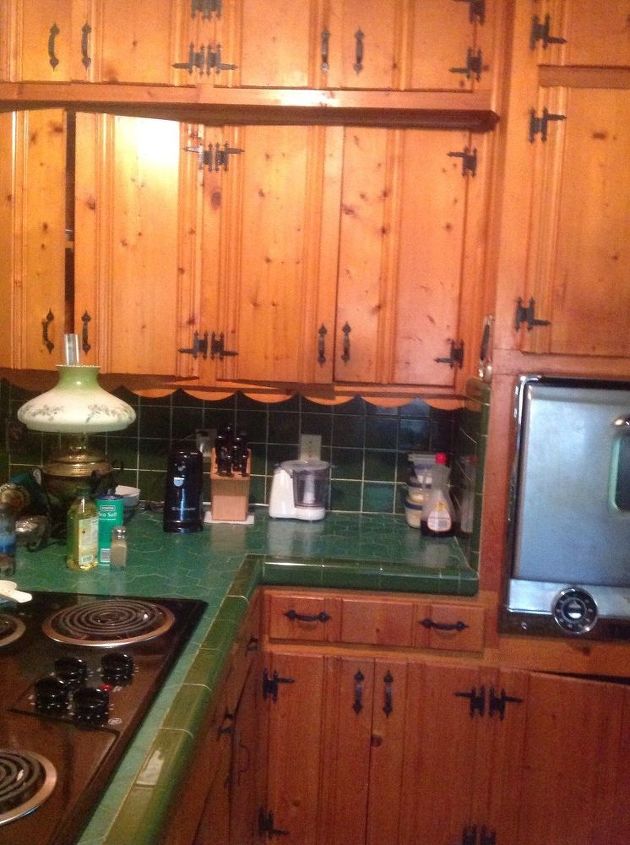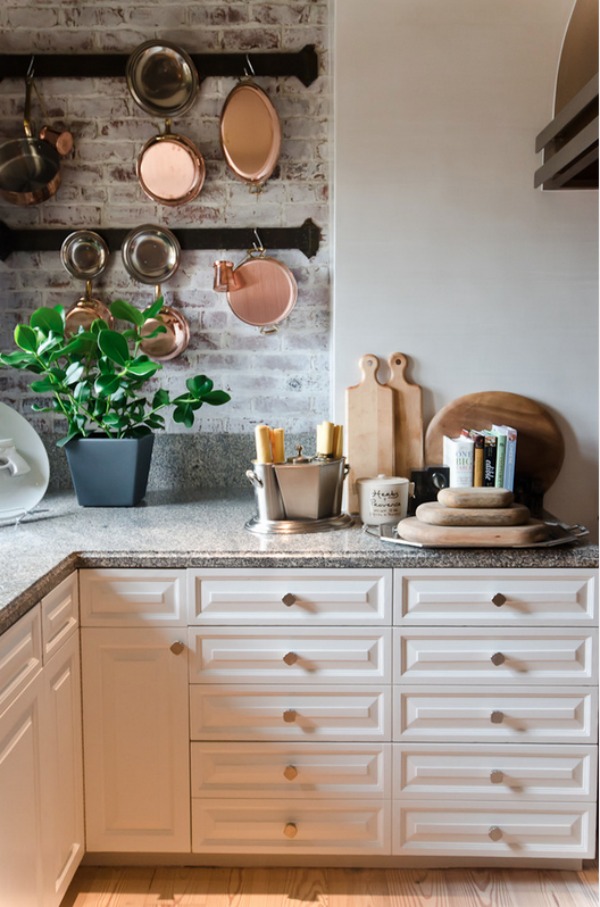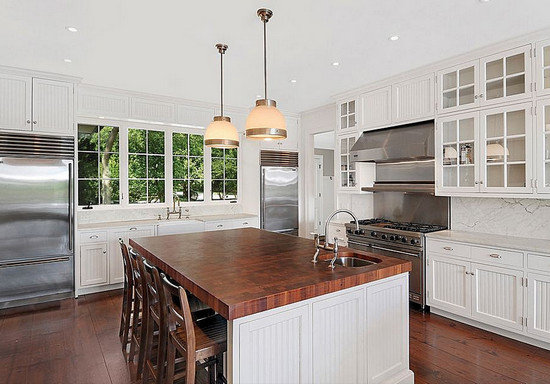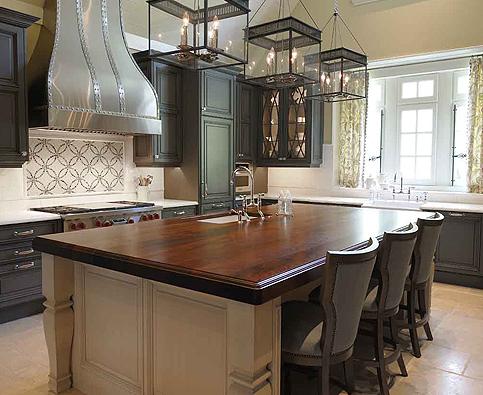Faux wood kitchen countertops have gained significant popularity in recent years due to their ability to mimic the warm, natural appearance of real wood while offering several practical advantages. I’ve noticed that homeowners, like myself, are constantly on the lookout for materials that balance aesthetics, durability, and cost-effectiveness. Faux wood, made from materials such as laminate, vinyl, or composite wood products, offers a compelling alternative to solid wood, especially for those who want to achieve that classic wooden look without the higher maintenance demands.
One of the first things that struck me about faux wood countertops is their affordability. Real wood countertops, while stunning, can be quite expensive to install and maintain. Faux wood, on the other hand, offers a budget-friendly option that still gives off the aesthetic charm of natural wood. You can choose from a variety of finishes and grain patterns, meaning you can mimic almost any type of wood species, from oak to walnut, without the associated cost. Plus, the installation process tends to be quicker and less labor-intensive compared to real wood, making it an ideal option for a kitchen renovation on a budget.

Durability is another standout feature of faux wood countertops. While real wood can be prone to scratches, dents, and water damage, faux wood materials are designed to be more resistant to these common issues. Laminates, for instance, are constructed with a protective coating that makes them resistant to scratches and stains. This makes faux wood countertops an excellent choice for high-traffic kitchens where spills and heavy use are inevitable. The moisture resistance is especially important in kitchen settings, where countertops frequently come into contact with water. Real wood can warp or swell if not properly treated, but faux wood sidesteps these concerns.
Another advantage of faux wood countertops is the ease of maintenance. Real wood requires regular oiling, sanding, and resealing to keep it looking its best. Faux wood, however, can be easily cleaned with just soap and water. There’s no need to worry about special treatments or refinishing, which can save both time and money in the long run. The low-maintenance aspect is a huge plus for busy households where daily upkeep needs to be quick and easy. As someone who values both aesthetics and practicality, I find faux wood to strike a great balance in this regard.

One of the challenges with real wood is that it can be sensitive to heat and moisture. Placing a hot pan directly on a wood countertop can leave burn marks, and prolonged exposure to moisture can lead to swelling or warping. Faux wood countertops are typically more heat and moisture-resistant, making them a more forgiving option for busy cooks. While it’s still a good idea to use trivets and cutting boards, faux wood countertops are less likely to show damage from everyday kitchen activities.
In terms of customization, faux wood countertops offer a wide array of design options. You can select from different wood grain patterns, textures, and finishes, allowing you to create a look that complements your kitchen’s overall style. Whether you’re going for a rustic farmhouse vibe or a sleek modern aesthetic, there’s likely a faux wood option that will match your vision. Furthermore, these countertops can be easily cut and shaped to fit any kitchen layout, including islands, breakfast bars, or custom-cut spaces around appliances.

On the sustainability front, faux wood countertops can also be considered a greener option. Real wood often comes from harvested trees, which can raise environmental concerns, especially if the wood isn’t sourced sustainably. Many faux wood materials are made from recycled or engineered products, which helps reduce waste. This makes faux wood an appealing choice for those looking to reduce their environmental footprint without sacrificing the warmth and beauty of wood in their kitchen.
In addition to their functional benefits, faux wood countertops can enhance the overall ambiance of a kitchen. The warmth and texture of wood—real or faux—add a cozy, inviting feel to the space. Many homeowners, myself included, find that faux wood countertops can make a kitchen feel more homely without the fear of damaging an expensive surface. The variety of colors and finishes available allows you to blend the countertops seamlessly with cabinetry, flooring, and other design elements in the kitchen.
Despite their advantages, faux wood countertops aren’t entirely without drawbacks. One common issue is that, while they mimic the look of real wood quite well, they can lack the depth and richness of authentic wood grain upon closer inspection. Some homeowners might feel that faux wood lacks the “soul” of real wood, as it doesn’t age or develop the same character over time. Still, for the price and practical benefits, this is a small trade-off that many are willing to make.

Moreover, faux wood countertops can occasionally be prone to chipping or peeling, especially around the edges, if not properly cared for. Over time, heavy use and wear and tear can lead to damage, and while it’s often repairable, it doesn’t have the same longevity as solid wood. That said, with proper care and maintenance, faux wood countertops can last for many years, giving you excellent value for your investment.
Another factor to consider when choosing faux wood countertops is the quality of the material. There’s a wide range of options available, from lower-end laminates to higher-quality engineered wood products. It’s essential to research and invest in a reputable brand or product to ensure you’re getting a countertop that’s durable and well-made. Lower-quality faux wood may look good initially but can wear down faster, leading to the need for replacement sooner than expected.

Common Mistakes to Avoid
When installing faux wood countertops, one common mistake people make is neglecting to properly seal the edges and seams. While faux wood is more moisture-resistant than real wood, water can still seep into seams, especially around sinks and dishwashers, leading to potential damage over time. Ensuring that all joints are sealed tightly during installation can help prevent moisture from infiltrating and causing problems down the road.
Another mistake is not using heat protection despite the heat resistance of faux wood. While faux wood materials are more resilient than real wood, placing hot pans directly on the surface can still cause damage or discoloration. Always use trivets or hot pads to protect the surface.
Overloading the countertop with too much weight is another common error. While durable, faux wood countertops have weight limits, especially with thinner materials. Avoid standing or sitting on the countertops, and be cautious when placing heavy appliances or objects on them.

Not cleaning spills immediately can lead to staining, especially if the surface is a lighter color. While faux wood is relatively stain-resistant, some materials can absorb spills if left untreated for too long. Make sure to wipe down any spills, especially acidic substances like vinegar or tomato sauce, to avoid permanent marks.
Improper maintenance is another pitfall. While faux wood is low maintenance, that doesn’t mean it’s maintenance-free. Regular cleaning and avoiding abrasive cleaners are essential to preserving the surface’s appearance. Harsh chemicals can damage the protective layer of laminate or vinyl surfaces, leading to dulling or scratching over time.
Lastly, skimping on professional installation can lead to alignment issues and improper sealing. Even though faux wood countertops are more affordable, it’s crucial to invest in proper installation. Misaligned edges, uneven surfaces, or poor sealing can detract from both the look and function of the countertop.

How durable are faux wood countertops?
Faux wood countertops are generally very durable, especially when made from high-quality laminate or composite materials. They are resistant to scratches, stains, and moisture, which makes them ideal for kitchen use. However, like any surface, they are not indestructible and can show wear over time, particularly if not properly maintained. Regular care and avoiding direct heat or heavy impacts can extend their lifespan significantly.
Can faux wood countertops withstand heat?
Faux wood countertops can handle some heat, but they aren’t as heat-resistant as materials like stone or quartz. It’s best to use trivets or hot pads to protect the surface from hot pans and pots. Prolonged exposure to high temperatures can lead to warping or discoloration, so it’s a good idea to exercise caution, even if the material is heat-resistant to some degree.
Are faux wood countertops easy to clean?
Yes, faux wood countertops are easy to clean. A simple solution of soap and water is usually sufficient to keep them looking good. Avoid using harsh chemical cleaners or abrasive sponges, as these can damage the surface over time. For tough stains, a gentle cleaner specifically designed for laminate or composite materials can be used. Routine cleaning helps maintain their appearance without requiring much effort.

Do faux wood countertops look as good as real wood?
While faux wood countertops can closely mimic the appearance of real wood, they may lack some of the natural depth and warmth that real wood offers. Upon close inspection, the difference between faux and real wood can become noticeable, particularly in terms of texture and grain richness. However, with advances in manufacturing, high-quality faux wood countertops can come very close to replicating the look of natural wood at a fraction of the cost.
Are faux wood countertops eco-friendly?
Faux wood countertops can be an eco-friendly choice, especially if they are made from recycled or sustainable materials. Many laminate and composite products use recycled wood fibers or plastics, which reduces the demand for new raw materials. Additionally, choosing faux wood over real wood can help reduce deforestation, making it a greener option for environmentally-conscious homeowners.
How long do faux wood countertops last?
With proper care and maintenance, faux wood countertops can last anywhere from 10 to 20 years or more. The exact lifespan depends on the quality of the material and how well it is cared for. Regular cleaning, avoiding excessive heat or moisture, and preventing heavy impacts can help prolong the life of faux wood countertops, making them a long-lasting option for your kitchen.

butcher block countertop brick backsplash

Inexpensive Countertop Makeovers

Countertops – Interiors by Kitchen Koncepts

Grey Kitchen With Wooden Countertops Pros And Cons / 29 Quartz Kitchen Countertops Ideas With

Related Posts:
- River White Granite Kitchen Countertops
- Kitchen Countertop Polish
- Price Comparison Kitchen Countertop Materials
- Kitchen Countertop Malaysia
- Kitchen Marble Countertops And Backsplash
- DIY Wood Plank Kitchen Countertops
- Ugly Kitchen Countertops
- Photos Of Kitchen Countertops
- Kitchen Backsplash With Black Granite Countertops
- Stainless Steel Kitchen Countertops